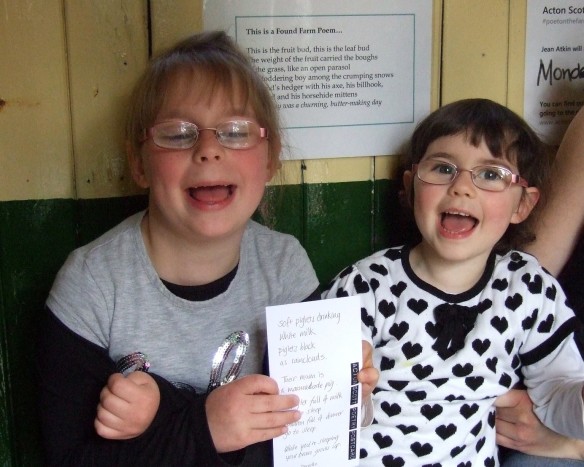Yesterday I managed at last to spend an hour with Ian Wall, who is Acton Scott’s long-standing bodger. He works in a stockaded yard filled with pole lathes. Everywhere wood is stacked and leaned, in varying stages of craftsmanship.
I even had a go, and was quite exhilarated to see the chisel smooth out a ring in the stool leg. Emboldened, I tried using a wire wound onto wooden handles (“What do you call that Ian?” “A wire on wooden handles”) to make decorative dark lining onto the leg. When Ian does it it smokes as the friction burns blackly into the wood. When I did it, I burnt my finger.
However, I have the beginning of some words that might make a poem.
The bodger whacks the lathe
with a billet, shifts the centres;
he twists the rope
around the wood, tucks it in.
He says, once
the little poppets
are in bed, then I
shall go for a turn.
(The little poppets are two big lumps of wood that can be adjusted to take the length of wood that is to be turned. When they’re knocked into the right place, they’re in the ‘bed’ of the lathe).











 Today I was so privileged to witness two very young children’s responses in words to the rare experience of being placed up on the back of Charlie, a Shire horse. Charlie is on the left in this photo.
Today I was so privileged to witness two very young children’s responses in words to the rare experience of being placed up on the back of Charlie, a Shire horse. Charlie is on the left in this photo.









